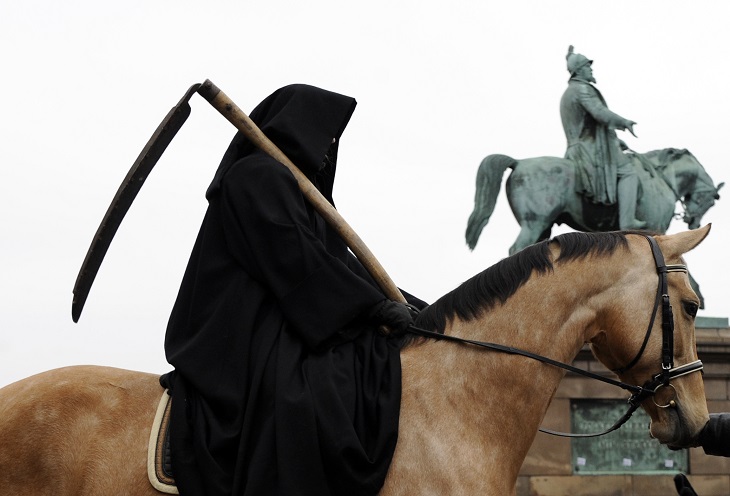The appearance of Covid brought a resurgence of fears of Armageddon.
Conscious of mankind’s imperfections, ancient settled societies envisaged a destructive reckoning that could only be averted by the people’s acceptance of and subservience to a warrior god. Jews, Christians, and Muslims have their own versions, as does Marxist Leninism.
The Christian version features the Four Horsemen of the Apocalypse, each one soothing personal unhappiness with measures that carry seeds that worsen it.
Already a subscriber? Log in
Subscribe for just $2 a week
Try a month of The Spectator Australia absolutely free and without commitment. Not only that but – if you choose to continue – you’ll pay just $2 a week for your first year.
- Unlimited access to spectator.com.au and app
- The weekly edition on the Spectator Australia app
- Spectator podcasts and newsletters
- Full access to spectator.co.uk


























Comments
Don't miss out
Join the conversation with other Spectator Australia readers. Subscribe to leave a comment.
SUBSCRIBEAlready a subscriber? Log in